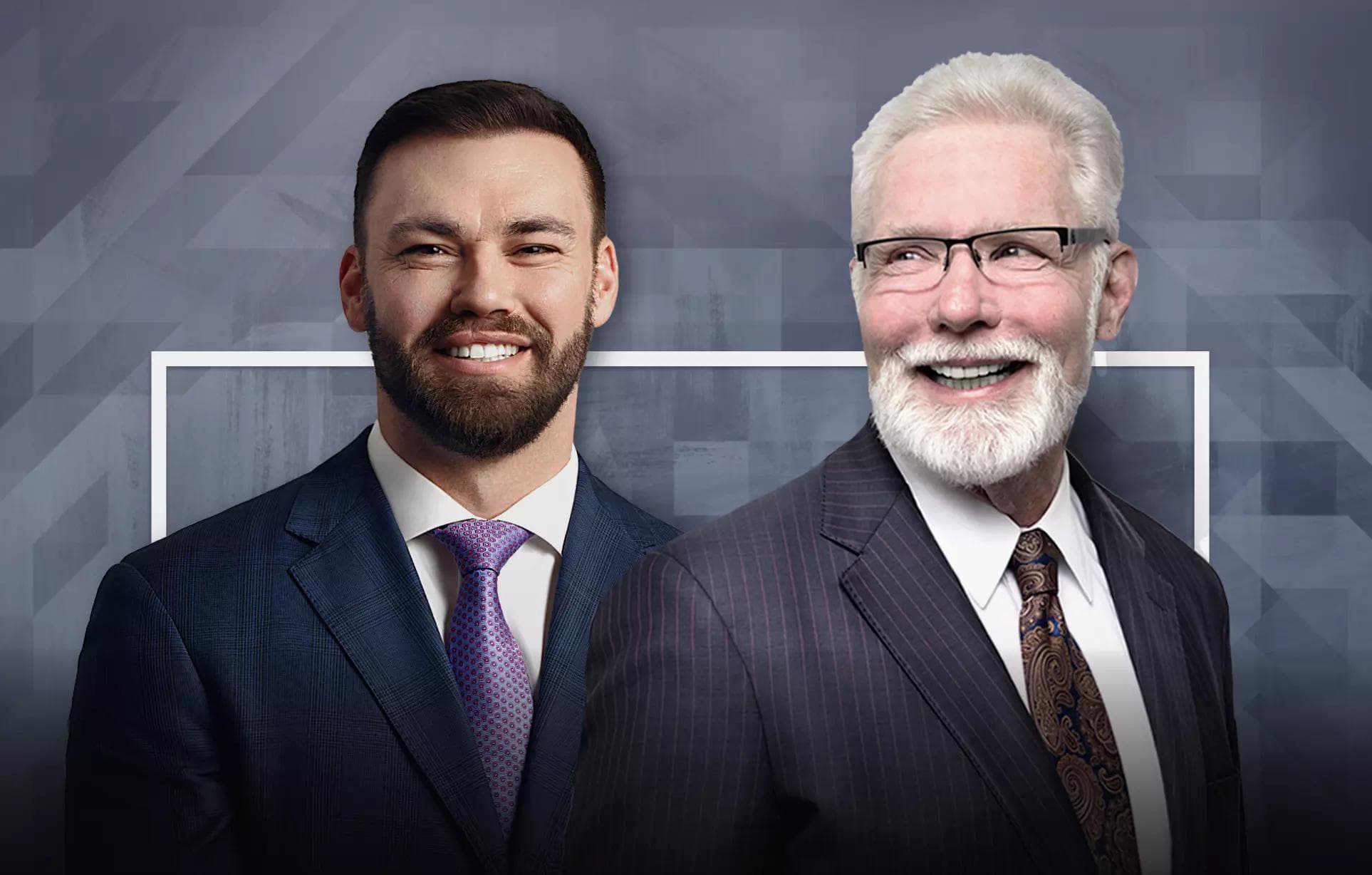
Questions to Ask a Personal Injury Attorney Before Hiring One
Free ConsultationWhen you’re hunting for a personal injury lawyer, it’s about more than just checking boxes. It’s about understanding who’s going to be in your corner.
You’ll want to scrutinize their track record, discuss their fees, understand their communication style, and gain insight into their specific strategy for your case. Knowledge is power, and understanding their plan of action is non-negotiable.
Transparency is another major player in this game. Make sure they provide a clear breakdown of their fees and can walk you through the legal process without the jargon.
When looking for the right personal injury attorney for your case, there are many questions you should ask. Here are the top 13 questions to ask a personal injury attorney before you hire one.
1. How many years have you been practicing in California?
The number of years an attorney has been practicing and their area of specialization are important factors to consider when hiring a personal injury lawyer. This question gauges the depth of the attorney’s experience and their familiarity with the local legal landscape.
2. Have you always practiced personal injury?
An attorney who has been practicing for many years in California would have a comprehensive understanding of the state’s personal injury laws, court procedures, and legal community, which can significantly impact your case. If they’ve always focused on personal injury law, it indicates a dedication to this field, suggesting they possess specialized knowledge and skills, which could benefit your situation.
3. Can you provide examples of similar cases you’ve handled and their outcomes?
An attorney’s past performance is a reliable sign of their future competence. By asking this question, you can assess whether they have a proven track record in managing cases akin to yours. It offers a glimpse into their strategic approach, their negotiation skills, and their ability to secure favorable outcomes.
While success in past cases is encouraging, it’s not a guarantee of future results. Each case has its unique set of circumstances. However, an attorney who has consistently achieved positive outcomes in similar cases is likely better equipped to navigate the complexities of your case effectively.
4. What percentage of your cases settle out of court versus going to trial?
Most personal injury cases are settled before they reach the courtroom. This can be advantageous for the client, as settlements often mean less stress, lower costs, and quicker resolutions. However, the willingness and ability to take a case to trial if necessary is equally important. It demonstrates the lawyer’s commitment to securing the best possible outcome for their client.
The answer to this question can provide insight into the lawyer’s approach and strategy. An attorney who mostly settles might excel at negotiation, while one who frequently goes to trial is not afraid to stand up in court and push for a better result.
5. How often will we communicate, and who will be my point of contact?
This question allows you to understand the attorney’s communication style and frequency. Regular updates are not just about staying informed; they also provide reassurance that your case is being actively managed. You’re not just another file in a stack but a person whose life has been impacted by an injury.
Knowing who your point of contact is can eliminate potential confusion. Will you be speaking directly with the attorney, or will a paralegal or assistant handle most communications? A dedicated contact person ensures a smoother flow of information.
6. What is your approach to handling personal injury cases like mine?
Personal injury cases are not one-size-fits-all. Each case comes with its unique set of circumstances, requiring a tailored strategy. By posing this question, you get into the attorney’s thought process. You can gauge whether they take a meticulous, proactive approach or if they prefer to react as events unfold.
Are they aggressive, pushing for maximum compensation, or do they lean towards quick settlements to avoid protracted legal battles?
7. Can you walk me through the legal process I should expect?
This question allows you to gauge the attorney’s ability to clearly and concisely explain complex legal procedures. It’s paramount that you understand the road ahead. You need to know what steps will be taken, from filing the lawsuit to negotiation, settlement discussions, or even trial.
Their response will provide insight into their experience. An attorney well-versed in personal injury law should be able to outline the process with relative ease, demonstrating confidence in an otherwise daunting journey.
8. What is your fee structure, and are there any additional costs I should anticipate?
This question cuts straight to the chase. It clarifies what you’ll be paying for the attorney’s services and when you’ll be expected to pay. Most personal injury attorneys operate on a contingency basis, meaning they get paid only if you win your case. However, the percentage they take can vary, so get this clarified upfront.
Don’t forget about potential additional costs either. These could include court fees, expert witness fees, administrative costs, and more. While your attorney cannot predict an exact figure, a ballpark estimate can help you manage your expectations.
9. How long do you estimate it will take to resolve my case?
This question serves multiple purposes. First, it allows you to plan your life accordingly. Legal proceedings can be long-winded and disruptive. Having a rough timeline helps in managing expectations and mitigating stress.
Second, the response to this question reveals much about the attorney’s experience. Seasoned attorneys, familiar with the complexities of personal injury law, can provide a reasonable estimation based on their past cases.
However, remember that the law is not an exact science. Each case is unique with its own set of variables. An estimated timeline is just that—an estimate.
10. How do you determine whether to accept a settlement or go to trial?
This question probes the attorney’s decision-making process. It evaluates their ability to make calculated moves, balancing risks and rewards. A good attorney knows when to negotiate a settlement and when to fight it out in court.
But it’s not just about their decision-making ability; it’s about your involvement in that decision. A reputable attorney will include you in this process, considering your comfort level, financial situation, and long-term goals. They will also tell you when a settlement is in your best interest.
11. What potential challenges do you foresee with my case?
Asking this question will provide you with a roadmap of potential obstacles in your case. It’s about identifying the bumps before hitting the road. The response will offer a glimpse into the attorney’s analytical skills and their ability to anticipate and prepare for challenges.
But this is not just about hearing the challenges; it’s about understanding them. A competent attorney will not only list the challenges but also explain them in a manner that makes sense to you, and explain with clarity how they plan to overcome them.
12. If we lose the case, will I be responsible for any legal expenses?
This question addresses the elephant in the room—the possibility of losing. It’s not a pleasant thought, but it’s a scenario you must prepare for. The answer to this question will clarify who shoulders the burden of legal expenses if the case doesn’t swing in your favor.
It’s not just about knowing who pays; it’s about understanding how much they pay. An experienced attorney will explain the potential costs involved, giving you a clear picture of your financial obligations to pay them back for any costs.
13. Why should I choose you as my personal injury attorney?
This question allows you to assess the attorney’s confidence in their skills and their ability to articulate why they stand out from the crowd. You’re not looking for arrogance, but assurance that they possess the knowledge, experience, and dedication necessary to handle your case effectively.
A capable attorney will provide concrete examples of past successes, strategies they employ, and their unique approach to personal injury law.
PARRIS Law Firm Welcomes Your Questions
Each of these questions is a starting point for a broader conversation with potential lawyers. Ultimately, if you don’t feel comfortable with one, move on. This person will be your advocate, and you need to trust them.
PARRIS Law Firm has focused on California personal injury cases since 1985, securing billions in settlements and verdicts for our clients. Contact us today to learn more about how we can help you.






